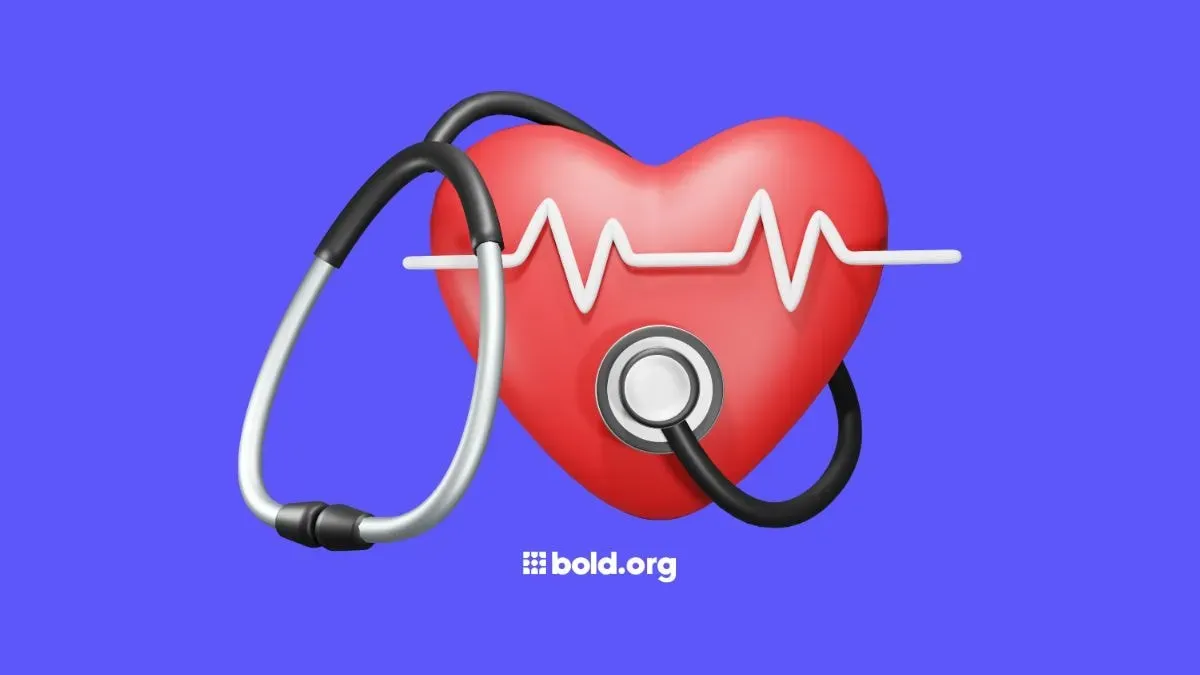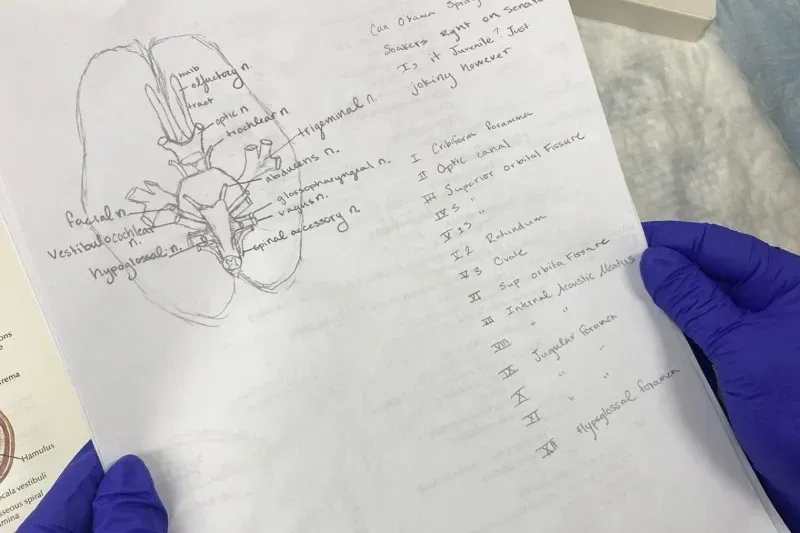What Is Residency in Medicine?


Choosing a future in medicine is one of the biggest career moves one can make. Not only will you be going down a professional path to help people in need, but you will also be taking on the rigorous academic schedule it requires, including the post-graduate residency program. One thing is completing medical school. The other is starting a medical residency that can lead you to become a great physician. But what exactly does it mean to be a resident?
Today’s article focuses on medical residencies. I will go in-depth on what a medical residency is, the differences between residencies and other medical training, the path to a medical residency, and more. Becoming a doctor is such an incredible journey to embark on, and it is one of the most demanding professions in the world. It’s important to know what to expect when choosing a life in medicine, so if you’re a medical student, grab your stethoscope and pay attention!
Create a Bold.org profile to use our scholarship search tool to access exclusive scholarships for medical students!
Get Matched to Thousands of Scholarships
Create your Bold.org profile to access thousands of exclusive scholarships, available only on Bold.org.
Create Free ProfileMedical Residency
As incredible as it is, graduating from medical school is only half the battle. As newly licensed doctors, the next several years of post-graduate training will be dedicated to a medical residency located in a hospital where future careers are defined. Late-night study sessions turn into long days at the hospital, and before you know it, residents are on their way to becoming Drs in their respective fields.
If you're here, you're probably considering medical school right now—and if that's the case, apply for these graduate school scholarships today! Shaving down the cost of medical school will help lessen the financial burdens you face when you eventually get into your residency program.
But what exactly is a medical residency, and what does it entail? Let’s talk about it.
Definition of Medical Residency
Medical residency is a post-graduate training program for doctors to gain hands-on experience and technical training in a chosen medical specialty (internal medicine, radiology, pediatrics, dermatology, etc.). A residency program takes place at a hospital or academic center and prepares residents (medical students/graduates) to become fully licensed physicians.
Medical residencies last anywhere between three to seven years, with surgical residencies lasting a minimum of five years, and involve a combination of clinical rotations, didactic education, and research opportunities. During a residency, doctors work under the supervision of experienced physicians to gain practical experience and develop their own clinical skills in their chosen field.
Once a doctor has completed their residency, they are then eligible to take the board certification exam and become licensed to practice independently in their chosen specialty.
Create Your Free Profile to Apply for Scholarships Today!
Residency vs Fellowship - What is the difference?
As an aspiring doctor, it’s important to know everything there is to know about a residency, especially when it comes to medical fellowships. To have a clear idea of your future career path, let’s discuss both in relation to one another.
- What is residency?
A residency refers to a training period where a student receives practical training in a medical specialty from seasoned doctors while being supervised by a physician-in-chief. The experience prepares them to develop their own practice.
- What is fellowship?
A fellowship refers to a training period that prepares the student for independent practice or to become a fully qualified doctor. Resident students are trained by seasoned physicians and work under the direction of a physician-in-chief, as well.
- Program duration
- Residency: Three to seven years
- Fellowship: One to two years
- Both: Maximum of four years
- Eligibility requirements:
- Residency: Doctorate or a medical degree not required to enroll in residency programs
- Fellowship: Both medical degree and Ph.D. required in your chosen specialty; at least one year of residency training
- Both: Demand at least one year of specialized training in your chosen specialty
- The kind of work that fellows and residents can expect:
- Residency: Residents are expected to perform many tasks. For instance, a resident might be asked to look after patients, perform surgery, use laboratory equipment, or analyze test data.
- Fellowship: Fellows and residents are expected to perform similar tasks but will essentially take on more responsibilities. For instance, a fellow might need to perform fundamental laboratory tests or other clinical work.
- Career possibilities after the program completion:
Though fellows and residents are not promised employment after their training programs are completed, they can expect:
- Residency: Residents of a hospital or healthcare institution are typically compelled to work as long as they are qualified to do so. However, after finishing a residency, they might be able to advance in their program and work toward becoming a professor or researcher.
- Fellowships: The fellowship program typically allows fellows to conduct research that could result in publication.

Structure of Medical Residency Programs
The importance of graduate medical education in medical residency is knowing that medical school trains future physicians in medical knowledge, but a residency focuses on all-around hands-on training with different medical specialties. This is to give students experience in all medical specialties, but for how long?
How Long is a Medical Residency Program?
The path to becoming a doctor isn’t a short one to take. You have your initial four years of medical school and then go straight to your residency. Each residency’s duration is dependent on the medical specialty, which can run anywhere between three and seven years, so where does that leave you? Take a look at my breakdown of medical residencies according to medical specialty:
- Anesthesiology: 4 Years
- Dermatology: 4 Years
- Family Medicine: 3-4 Years
- General Surgery: 5 Years
- Internal Medicine: 3 Years
- Interventional Radiology: 6-7 Years
- Neurology: 3-4 Years
- Obstetrics and Gynecology: 4 Years
- Ophthalmology: 4 Years
- Orthopedic Surgery: 5 Years
- Pathology: 3-4 Years
- Pediatrics: 3 Years
- Plastic Surgery: 6 Years
- Preventive Medicine: 3 Y
- Psychiatry: 5 Years
- Radiation Oncology: 5 Years
Responsibilities of a Resident Doctor
As they work closely with seasoned doctors and medical professionals, medical residents work hard and begin to acquire their own standards of practice as doctors during residency, such as providing patient care. Resident doctors are responsible for evaluating, diagnosing, and treating patients under the supervision of attending physicians and are involved in conducting physical examinations, ordering diagnostic tests, prescribing medications, and developing treatment plans.
Along with providing care, resident doctors also participate in rounds. That is, they participate in daily rounds with their healthcare team to discuss patient cases, review treatment plans, and provide updates on patient progress. They collaborate with other healthcare professionals to ensure coordinated and comprehensive care for patients.
Resident doctors will, more likely than not, perform various medical procedures, like inserting IV lines, suturing wounds, and assisting in surgeries, under the guidance of experienced physicians and continuing education. Residents are expected to participate in attending lectures, conferences, and workshops to enhance their medical knowledge and clinical skills.
As senior residents near the completion of their residency, they transition towards independent practice. This involves increasing their responsibilities and working more autonomously, though still under the supervision of attending physicians.
Above all, resident doctors are always required to adhere to ethical standards. One of a resident doctor’s biggest responsibilities is to uphold ethical standards and professional conduct in their interactions with patients, colleagues, and healthcare providers. They are to maintain patient confidentiality, respect patient autonomy, and adhere to institutional policies and guidelines.
Resident Doctor Compensation
A residency program is the first step to being able to practice medicine, and it will be time-consuming. Residents work long hours to ensure quality patient care and patient safety. Some have even been known to sleep at hospitals to ensure their presence is available when needed.
That is why it is important to know that resident doctors do get paid for their time during their residencies. Depending on location, medical specialty, and employer, the average medical resident salary is $67,400 annually as of 2023, according to the Residents Salary and Debt Report. Compensation for resident physicians also includes health benefits like health, dental, and vision insurance, paid time off, and paid meals.
If you are a medical student and/or future resident physician, be sure to check with your hospital or clinic to verify your salary according to your medical specialty.

Opportunities and Challenges in Medical Residency
Despite the grueling years of medical education and practice, becoming a doctor can be very rewarding. Not only does becoming a doctor and completing a residency provide personal growth and fulfillment, but it also creates opportunities for future doctors beyond the residency.
- Clinical Experience: Residents are provided the opportunity to gain hands-on clinical experience and develop their skills under the guidance of experienced physicians.
- Networking: Residents have the opportunity to build relationships with colleagues, mentors, and other healthcare professionals, which can be valuable for their future careers.
- Research Opportunities: Many residency programs offer opportunities for residents to participate in research projects and contribute to the advancement of medical knowledge.
Common Challenges Faced by Residents
Though there is personal and professional fulfillment in medical residencies, resident doctors do face challenges that can hinder their focus and motivation. Some include, but are not limited to:
- Long Working Hours: Long hours, including overnight shifts, can lead to fatigue and burnout.
- High Levels of Stress: The demanding nature of a residency can lead to high levels of stress and emotional burnout.
- Limited Work-Life Balance: Clinical responsibilities demand most of a resident’s time, which can interfere with personal commitments and lead to a lack of work-life balance.
- Educational Demands: Residencies require residents to complete clinical duties, keep up with educational requirements, and participate in research opportunities, which can be overwhelming.
- Emotional Challenges: Difficult patients, complex medical cases, and end-of-life care can take an emotional toll on residents.
Recognizing challenges can also help residents embrace their opportunities for personal growth and professional development. It’s important for future resident doctors to know what to expect so they can navigate their medical residency successfully and become compassionate and ethical professionals.

Frequently Asked Questions About Medical Residencies
How long is a medical residency program?
On average, a medical residency lasts anywhere between 3 to 7 years, depending on the medical specialty chosen by the resident. During their residency, residents receive supervised training and hands-on experience in their chosen field to become skilled physicians.
Is residency paid?
Yes, medical residents do receive a salary or stipend for their work during residency training. The amount of payment varies depending on the institution, location, specialty, and level of training. While the salary for medical residents is lower than that of fully licensed physicians, a resident salary covers living expenses and supports residents during their training period. Residents may also receive health benefits, malpractice coverage, and paid time off.
What are common challenges future physicians face during residency?
As fulfilling as becoming a doctor can be, future physicians do face both personal and professional challenges throughout their journeys, like work-life balance, lack of time for personal affairs, difficult patients, difficult patient obstacles like end-of-life care, and high stress levels. By familiarizing themselves with these nuances, residents can know what to expect during their residencies and be prepared to face those obstacles with grace and understanding.
Haven't completed medical school? Browse through some of our exclusive medical school scholarships now to secure financial support for your future as a medical student!

About Chanelle
Chanelle is a dedicated and seasoned writer, editor, and researcher. She’s familiar with college admissions, finding and applying for scholarships, and the financial aid process.
She graduated from the University of South Florida with a major in English, Creative Writing with a specialization in Technical Writing.
Experience
Chanelle has over a decade of experience in the writing industry, specializing in blog writing, SEO writing, editing, translations, corporate writing, and various forms of creative writing. She founded and operated Femme Feature Magazine, an online and print publication dedicated to celebrating women in all corners of the creative field. An avid reader, Chanelle is constantly seeking refined and innovative ways to tell her stories. Writing is her foremost passion, and she is always on the lookout for her next narrative adventure.
Since joining the Bold.org team in 2023, Chanelle has brought her enthusiasm for merging the writing and digital worlds. She is dedicated to assisting students and young adults in navigating their educational and professional journeys.
Chanelle's unwavering commitment to her craft and her dedication to helping others shine through in her work. Leveraging her personal and professional experiences, she provides invaluable support to students, empowering them to achieve their goals and realize their potential.
Quote from Chanelle
“There is always a way to say the same thing over and over again. You just have to be creative and think outside the box.”